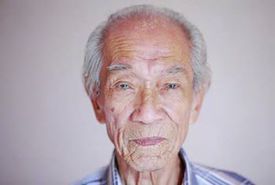Older People and the Law: Difference between revisions
Drew Jackson (talk | contribs) |
Drew Jackson (talk | contribs) |
||
| Line 121: | Line 121: | ||
A will is not the same as a '''power of attorney'''. A power of attorney sets out your <span class="noglossary">instructions</span> for dealing with your financial and legal affairs ''while you are alive''. (See the next section about powers of attorney.) | A will is not the same as a '''power of attorney'''. A power of attorney sets out your <span class="noglossary">instructions</span> for dealing with your financial and legal affairs ''while you are alive''. (See the next section about powers of attorney.) | ||
In your will, you need to name someone to be your '''executor'''. This is the person who carries out the instructions in your will. The executor of your will is not automatically the same person as your power of attorney unless you appoint the same person as your executor and as your attorney. | In your will, you need to name someone to be your '''executor'''. This is the person who carries out the <span class="noglossary">instructions</span> in your will. The executor of your will is not automatically the same person as your power of attorney unless you appoint the same person as your executor and as your attorney. | ||
Most people ask a family member or close friend to be their executor. You can also ask a lawyer or private trust company. You should name a backup executor in case the person you choose isn't able or willing to do the job at the time. Then the backup can take over. | Most people ask a family member or close friend to be their executor. You can also ask a lawyer or private trust company. You should name a backup executor in case the person you choose isn't able or willing to do the job at the time. Then the backup can take over. | ||
Revision as of 22:30, 28 April 2022
| This information applies to British Columbia, Canada. Last reviewed for legal accuracy by People's Law School in April 2022. |
|
|
This page is used in the Elder Law Lesson Module, a law-related ESL lesson for newcomers to Canada. |
This section deals with the laws that especially affect older people. This area of law is often called elder law.
Retirement and government benefits

The government offers several programs to help people financially as they get older. These “social security” programs pay benefits when you retire, become disabled, or lose a job.
- Old Age Security provides older adults with a monthly pension payment.
- Canada Pension Plan provides workers with a monthly pension when they retire. It also pays benefits when a worker dies or becomes disabled.
- Employment insurance provides benefits to workers who lose their job. It also helps those who can’t work because of sickness, or need time off work to care for an ill family member.
Old Age Security
Old Age Security provides you with a monthly pension at age 65 if you have lived in Canada for at least 10 years. Your work history is not a factor. You can receive the pension even if you have never worked or are still working. You must be a Canadian citizen or a legal resident.
If you have a low income, you may be eligible for additional benefits on top of the Old Age Security pension. For those aged 60 to 64, there are allowance benefits. For those age 65 and over, there is a guaranteed income supplement.
You may need to apply to receive the Old Age Security pension. If you did not receive a letter from Service Canada the month after you turned 64, you should contact Service Canada. Their phone number is 1-800-277-9914. Have your social insurance number ready when you call.
Canada Pension Plan
If you worked in Canada, you can get a monthly retirement pension as early as age 60.
When you work, the government takes some money from your pay cheques (and from your employer) and puts it into the Canada Pension Plan (CPP). If you are self-employed, you have to pay money into the plan when you pay your income tax.
The plan pays a retirement pension to partially replace your income from working once you retire. The amount of your pension depends on how much you contributed to the plan. The CPP retirement pension is separate from your Old Age Security pension.
The Canada Pension Plan also provides benefits when contributors become disabled or die.
The standard age to start receiving your CPP retirement pension is 65. But you can take a reduced pension as early as age 60.
Your CPP retirement pension does not start automatically. You must apply for it. You can do so online or at a Service Canada office.
Employment insurance
Older adults who continue working after age 65 are eligible for the same employment insurance benefits as other workers in Canada.
EI, as it’s often called, provides benefits if you lose your job through no fault of your own (for example, due to shortage of work or seasonal layoffs) and can’t find a job.
Employment insurance also provides sickness benefits if you can’t work because of sickness or injury, and benefits to help caregivers take time away from work to care for family members who are ill or injured.
You can apply for EI benefits online or at a Service Canada office.
Managing your money
Joint bank accounts
A joint bank account is held by two or more people. Any person whose name is on the joint bank account can put money into the bank account and take money out of it.
Sometimes people put their bank account into joint names with a friend or relative so the other person can help with banking, shopping, and taking out cash for spending. But any person named on the account can use all of the funds as their own and take out all the money. This is a downside of joint accounts.
An option to lower the risk is to open a second, smaller bank account. You can ask your bank to regularly move funds from your main account into the second account to pay for what you need each month. You can tell the person who is helping you with banking and shopping that they can withdraw money from this account but not the main account. The main account stays in your name only.
Direct deposits and automatic payments
Another option that is safer than a joint account is to set up direct deposits. You can ask the government to have your pension and other cheques deposited directly into your bank account. You can also ask your bank about setting up automatic bill payments from your account.
The bank will send you a monthly statement so you know all the activity in your account. There might be a small cost, but many banks have low or no fees for services to older adults.
Talk to your bank manager for more ideas on keeping your money safe.
Protecting yourself and your money
Sadly, sometimes people try to take advantage of you, especially as you get older.
Scammers use a variety of methods to trick people out of their money. Some offer prizes and say you have to send them money to claim your prize. Some make threats, such as to bring criminal proceedings, unless you pay them money.
Others try to trick you to give up your personal information so they can access your bank accounts or run up debts in your name. This is called identity theft. It involves taking your personal information — without your knowledge or agreement — to commit fraud or theft.
Here are some key ways to protect yourself and your money.
Be careful with your personal information
This includes your name, address, phone number, and date of birth. Don’t give them out to anyone you don’t know and trust. Same with your social insurance number, credit card numbers, and bank account information.
Be careful when throwing away credit card statements and receipts. Tear the receipts up or put them through a paper shredder. Criminals may go through the trash and use the statements and receipts to find out information about you.
Keep your passwords separate from your bank cards. If you write down passwords, make sure you store them in a safe place. Don’t keep passwords in your wallet.
Don’t give information when someone contacts you
If an offer sounds too good to be true, it usually is. If someone phones or emails with a prize or an offer and starts asking questions, they may be trying to learn your personal information. It’s not safe to give these people information about yourself or your accounts.
A bank will never ask for personal information or passwords over the phone unless you call them, and the bank asks you to prove your identity. A bank will never email you and ask for your passwords or the numbers for debit or credit cards.
If you have caller ID on your phone, you can look to see if the number belongs to someone you know. If the number is not familiar, you can let the phone ring and ignore the call.
Register with the do not call list
You can register for the national do not call list to reduce calls from people and companies trying to sell you things.
Elder abuse
Elder abuse is mistreatment that harms an older adult. It can take many forms:
- Physical abuse: using physical force against an older adult.
- Financial abuse: misusing an older adult’s money or property. It includes forcing an older adult to sign a document.
- Neglect: not keeping an older person clean and safe.
- Sexual abuse: forced sexual contact of any kind.
- Psychological or emotional abuse: actions that cause mental or emotional harm. It includes threats, verbal abuse, and humiliation.
Signs of abuse
Here are some signs that abuse may be happening:
- Physical abuse: bruising and injuries that cannot be explained.
- Psychological or emotional abuse: someone shows a high level of anxiety or distress.
- Financial abuse: large unexplained withdrawals from bank accounts.
- Neglect or self-neglect: lack of bathing, unclean living conditions, and lack of health aids such as dentures or glasses.
Different types of abuse often occur at the same time. For example, a victim of physical abuse may also be a victim of psychological or emotional abuse.
Where to go for help

Everyone deserves to be treated with dignity and respect. Elder abuse is always wrong, and can also be a criminal offence.
The following resources can provide support to you or someone you know. See the Find Out More section for additional contact information.
- If someone is in immediate danger, call 911.
- Seniors First BC operates the Seniors Abuse and Information Line (SAIL). It provides confidential legal information and emotional support over the phone. They can also provide legal representation in certain areas of law.
- BC Association of Community Response Networks can put you in touch with agencies in your community that help older people who are being abused or neglected. As well as by community, you can search the network by type of support, such as for Indigenous People.
- VictimLinkBC is a toll-free, confidential phone service that can put victims of abuse in touch with counselling and other supports. Call 1-800-563-0808 anytime, 24/7.
Wills and planning for your future care

At any age, it’s important to put your affairs in order in case something drastic happens to you. But this becomes especially important as you get older.
For most people, making a will is a critical step to plan for their passing. And there are documents to consider putting in place in case you get sick or become mentally incapable. These include a power of attorney and a representation agreement.
Making a will
A will is a legal document that sets out what will happen after you die to (most of) your property and any minor children. (A will doesn't cover property you own jointly with other people or accounts where you've named a beneficiary.)
A will is not the same as a power of attorney. A power of attorney sets out your instructions for dealing with your financial and legal affairs while you are alive. (See the next section about powers of attorney.)
In your will, you need to name someone to be your executor. This is the person who carries out the instructions in your will. The executor of your will is not automatically the same person as your power of attorney unless you appoint the same person as your executor and as your attorney.
Most people ask a family member or close friend to be their executor. You can also ask a lawyer or private trust company. You should name a backup executor in case the person you choose isn't able or willing to do the job at the time. Then the backup can take over.
You can cancel a will and make a new one any time, as long as you are mentally capable.
People’s Law School explains what’s involved in preparing your will.
Making a power of attorney
A power of attorney is a legal document that names another person to be your attorney. An attorney is someone you trust to manage your financial and legal matters while you are alive. This might include paying bills, depositing money in your bank account, investing your money, or selling your home. They can’t make health care decisions for you.
(The word attorney does not refer to a lawyer. It refers to the person you choose to manage your affairs under the power of attorney.)
You must be mentally capable when you sign a power of attorney. This means you must understand what you are doing and what might happen as a result.
The person you name as your attorney must act in your best interests and follow your wishes.
You can still handle your own affairs after you appoint an attorney. You can also revoke (that is, cancel) a power of attorney at any time and make a new one with a different attorney, as long as you are mentally capable.
Choosing an attorney
Choosing your attorney is an important decision, and it's not always easy. Most people ask a trusted friend, a relative, or a lawyer to be their attorney. Key considerations include choosing someone you trust, who understands the responsibilities involved, and who ensures your needs — not theirs — come first.
You can have one or two people act as your attorney. The people who act as your attorney can act together, or one or the other attorney can be named as an alternate (a backup). This will help make sure your wishes are followed.
There are different types of power of attorney

There are different types of power of attorney. Which one you choose depends on your needs.
- General power of attorney. You appoint an attorney to manage your financial and legal affairs, but the appointment ends if you become mentally incapable.
- Enduring power of attorney. You appoint an attorney to manage your financial and legal affairs, and the appointment continues — or “endures” — in the event you become mentally incapable.
- Limited power of attorney. You give someone the power to do certain things only. You say exactly what action your attorney can take. For example, if you are travelling in another country, you might give your attorney the power to do your banking while you are away.
If you have worries about your attorney
Your attorney has a duty to act in your best interests and to follow your wishes. But some attorneys misuse their power. They might take funds out of your bank account without your permission. Or sell what you own and use the money for themselves. This is financial abuse and sadly it happens often, especially to older people.
If you are worried about financial abuse, you can contact the places listed above under elder abuse. Also see the options for legal help listed in the Find Out More section.
Making a representation agreement

A representation agreement is a legal document that deals with health and personal care. It lets you choose someone to help you make certain decisions — or to make decisions for you — if you’re ever incapable of making those decisions yourself. The person you choose is called your representative.
There are two types of representation agreement. A standard representation agreement gives limited authority to your representative to make health and personal care decisions for you, as well as routine financial decisions. It doesn't allow a representative to make decisions about end-of-life care.
Even if someone is not mentally capable of managing their own affairs, they may be able to make a standard representation agreement. To do so, they need to understand what they’re agreeing to and what effect it will have on them.
An enhanced representation agreement gives more responsibility to your representative over health care and personal care decisions. (A representative has no authority to make legal or financial decisions under an enhanced representation agreement.) Your representative might even decide if you will or will not receive medical services necessary to continue life.
To make an enhanced representation agreement, you need to have full mental capacity.
In choosing a representative, it’s important to choose someone you know well and trust. Make sure they know your wishes. As your representative, they must respect those wishes, now and in the future, especially if you can’t speak for yourself.
People’s Law School has more on representation agreements.
Making an advance directive
In an advance directive, you can write instructions to your representative or to your doctor about what kind of health care you want and don’t want if you have a serious medical condition.
advance directives don’t cover personal care or financial affairs. They apply only to future health care and often deal with end-of-life decisions. Some people use the term living will when talking about an advance directive.
Instructions in your advance directive can be general statements such as "I don't want to be connected to machines to stay alive." Or they can be specific statements such as: “I don't want to receive donated blood.”
An advance directive ensures that your wishes are followed even if you are not able to speak for yourself due to an injury or illness.
You have to be mentally capable to make an advance directive.
People’s Law School explains what’s involved in preparing an advance directive.
Know what you're signing
Signing a legal document means you agree to everything written in it. The document becomes legally binding.
Don’t be pressured into signing any legal document. And don’t sign anything you don’t understand. Take your time. If you have any questions, talk with a lawyer or a trusted friend.
| |||||||||||||||||||||||||||||

